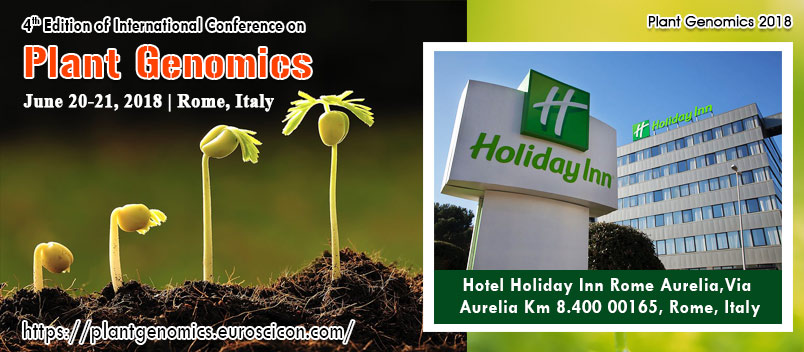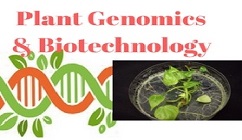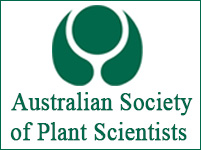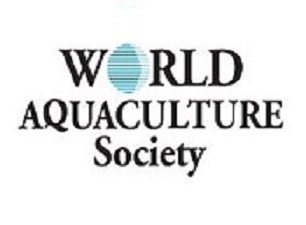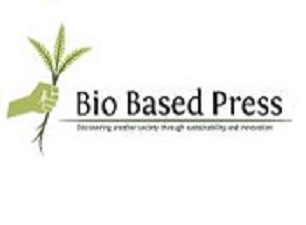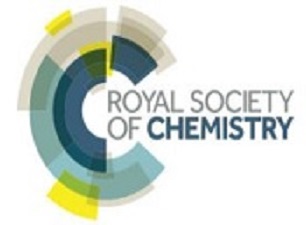Plant Genomics 2018
SESSION AND TRACKS
SESSION AND TRACKS
Track 1: Plant Genomics and Biotechnology:
The development and use biotechnology and genomic tools in economically important plant species such as forest and fruit species, cereals, legumes and medicinal plants. Major efforts are directed to explore genomic tools, such as sequencing, transcriptomics, proteomics, and molecular markers, to identify regulators, genes and strategies responsible for resistance to pests and diseases and for tolerance to water deficit, salinity and temperature stress. Grounded by physiology, biochemistry and biotechnology tools, we identify new plant products, improve biomass production, and also support breeding programs. The study of bioactive compounds and potential health beneficial effects of food metabolites is also performed.
- Cereal Genomics
- Plant Science Meeting
- Plant genomics scope in Europe
- Micropropagation in Plants
- Plant Tissue Culture and Biotechnology
- Sequencing
- Transcriptomics
- Proteomics
- Molecular marker development / Marker assisted selection
Track 2: Plant Genome Engineering: Strategies and Developments
Modern approach in genome engineering (GE) has made it possible to accurately alter DNA sequences in plant cells, providing specifically engineered plants with traits of interest. Gene targeting efficiency turns on the delivery-method of both sequence-specific nucleases and repair templates, to plant cells.
- Plant Genome Engineering and Plant genetic diversity
- Improving gene editing technology, enzymes, and methods
- Genome editing applications using new techniques
- Genome editing and the latest EU policies
- Genome / DNA assembly for editing
- Plant Genetic Engineering and GM crops
- Plant Gene Editing for the Consumer
- Plant Genomics its Applications in Cerals
- Plant Biology Conferences
- Track 3: Plant Functional Genomics

Functional Genomics has been established to study the structure and function of nuclear genome in higher plants.
- Drought Tolerance and Frost Tolerance
- Heat Tolerance
- Hybrid wheat and Phenotyping
- Plant Science Meeting, Paris, Plant Biology Conferences
- Plant Transformation
- Salinity Tolerance
- Structural Biology
- Plant Genomic Case Studies
Track 4: Plant Genetics and Epigenetics
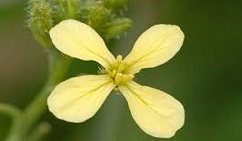
Plants developed gradually experienced genetic and epigenetic controlling systems to respond rapidly to unfavourable environmental conditions such as heat, cold, drought, and pathogen infections. In particular, heat greatly affects plant growth and development, immunity and circadian rhythm, and poses a serious threat to the global food supply. Transgenes appear to be particularly sensitive to epigenetic variation which can lead to transgene silencing, i.e. the complete or partial inactivation of transgene expression. Plants are ideal model systems to study the influence of changing environmental conditions on epigenetic patterns. We are especially interested to understand how certain genomic regions become targets for epigenetic modification and how environmental stress affects epigenetic gene regulation. Our applied work investigates how transgene silencing can be prevented and how epigenetic variation can be exploited for novel breeding strategies
- Epigenetics and DNA methylation studies
- Disease and stress resistance
- miRNA and RNA analysis
- Genetic conferences
- Plant breeding methods
- Pathogen detection and analysis
Track 5: Bioinformatics and Data Analysis
The plant co-expression is a new internet-based database for plant gene analysis ... A typical co-expressed gene can generate many lists of co-expression data that contain hundreds of genes of interest for enrichment analysis. Also, co-expressed genes can be identified and cataloged in terms of comparative genomics by using the ‘Co-expression gene compare’ feature. This analysis will help interpret experimental data and determine whether there is a common term to those genes.
- Bioinformatics analysis and challenges
- Use of genomic data for candidate genes
- Identifying novel functional genes
- Application of bioinformatics software for DNA / RNA analysis
- Computational systems for modelling and visualisation of information
- Cloud computing and storage solutions
- Molecular biology meetings
- Industry applications of the latest genomic technologies
- Collaborations and how they can drive plant research
- Insight into regulatory challenges
Track 6: Plant Science
Plant Science is focused on the genetic and cellular control of plant growth and development in model species, crops and their wild relatives using genomics, proteomics, systems biology and advanced light microscopy. Plant Science specialisation is designed to give students an understanding of how plants function, scaling from the molecule to the ecosystem and how this function underpins the performance of plants in natural and agricultural ecosystems. Plant Science is a major focus of scientific research activity at ANU, spanning everything from the function, energy, interactions, genetics and modeling of plants and their environments. In this specialisation students are exposed to cutting edge disciplinary research and researchers, which builds engagement, understanding and analysis of current issues in plant biology. The specialisation will assist students seeking to pursue professional and graduate degrees in plant sciences, and will provide a solid background for students pursuing career goals in plant laboratory science, and public and environmental policy.
- Plant Morphology and Plant Metabolism
- Medicinal and Aromatic Plant Sciences
- Biotechnology meetings
- Soil Science and Soil-Plant Nutrition
- Agricultural Science
- Plant Physiology and Biochemistry
Track 7: Plant Breeding
Plant breeding is the science of maximizing positive genetic traits in plants that people grow. It consists of analytical frameworks that allow researchers to create and select plants that are consistently outstanding in desired traits. The central objective in plant breeding is to improve the genetic basis of commercial crop species to comply with changing demands on yield and quality. Statistics plays a key role in modern plant breeding. A classical quantitative genetic model writes the phenotype as an outcome of genetic, environmental and genotype by environment interaction effects. In the genomic era, this classical model has been extended and generalized. Linear mixed models played an important role in classical quantitative genetics and still do so in modern.
- QTL Analysis
- Plant Molecular Assisted Breeding
- Marker Development
- Dubai Plant Science congress
- Genetic Modification
- Plant Epigenetics
- Signal Transduction
Track 8: Plant Proteomics
Plant Proteomics is concerned with the entire complement of proteins of plants including the modifications made to a particular set of proteins. Proteomics is an in depth study of a specific proteome, including information on protein and its modifications and variations. Proteomics works with the interacting partners and members associated with it in a sequential network. Plant Proteomics highlights the rapid progress in this field in plants, with emphasis on recent work in model plant species, subcellular organelles, and specific aspects of the plant life cycle such as signalling, reproduction and stress physiology.
• Omics Data integration
• Plant Intearction with Environment
• Quantitative Proteomics
Track 9: Genetically Modified Organisms-
A Genetically Modified Organism is a plant, animal, microorganism or other organism whose genetic makeup has been modified using recombinant DNA methods (also called gene splicing), gene modification or transgenic technology. This relatively new science creates unstable combinations of plant, animal, bacterial and viral genes that do not occur in nature or through traditional crossbreeding methods. GMO is any organism whose genetic material has been altered using genetic engineering techniques (i.e., a genetically engineered organism). GMOs are used to produce many medications and genetically modified foods and are widely used in scientific research and the production of other goods.
• Plant Science 2018 events
• GMO and Environment Interaction
Track 10: Plant Pathology
The science that deals with the study of diseases of plants, their development and control is called Plant Pathology. Plant Pathology is defined as the study of the organisms and environmental conditions that cause disease in plants, the mechanisms by which this occurs, the interactions between these causal agents and the plant (effects on plant growth, yield and quality), and the methods of managing or controlling plant disease. Plant diseases are caused by biotic agents like fungi, bacteria, actinomycets, Mycoplasma, viruses, nematodes, and flowering parasites or by abiotic like unfavourable environmental conditions or nutritional deficiencies. Study of plant pathology includes the study of sciences viz, Microbiology, Bacteriology, Virology, Mycology, Nematology, protozoology, phycology, unfavourable, environmental factors, nutritional deficiencies and flowering plant parasites.
•Plant Environment Interaction
• Plant Science
Track 11: Genome Sequencing
Genome Sequencing is the process of determining the complete DNA sequence of an organism's genome at a single time. This entails sequencing all of an organism's chromosomal DNA as well as DNA contained in the mitochondria and, for plants, in the chloroplast. It is basically figuring out the order of DNA nucleotides, or bases, in a genome—the order of As, Cs, Gs, and Ts that make up an organism's DNA. Plant Genomics researchers have readily embraced new algorithms, technologies and approaches to generate genome, transcriptome and epigenome datasets for model and crop species that have permitted deep inferences into plant biology. When a species’ reference genome is available, whole-genome resequencing is an efficient approach for discovering genes, SNPs, and structural variants, while simultaneously determining genotypes. Information from these studies will fill in the gaps that exist in the genetic maps of many plant species, improving plant breeding and selection, and enabling definitive comparative genomic analyses within and across species and few associations includes
• Drug Development and design
• SNPs
Track 12: Molecular Breeding
Molecular breeding is the application of molecular biology tools, often in plant breeding and animal breeding. Molecular breeding may be defined in a broad-sense as the use of genetic manipulation performed at DNA molecular levels to improve characters of interest in plants and animals, including genetic engineering or gene manipulation, molecular marker-assisted selection, genomic selection, etc. This term is used to describe several modern breeding strategies, including marker-assisted selection (MAS), marker-assisted backcrossing (MABC), marker-assisted recurrent selection (MARS), and genome-wide selection (GWS) or genomic selection (GS). Plant mutagenesis is rapidly coming of age in the aftermath of recent developments in high-resolution molecular and biochemical techniques. By combining the high variation of mutagenized populations with novel screening methods, traits that are almost impossible to identify by conventional breeding are now being developed and characterised at the molecular level.
• Mutagenesis in Plant Breeding
• Polyploidy in Plant Breeding
Track 13: Plant Synthetic Biology and Plant Transcriptome
Plant synthetic biology is an emerging field that combines engineering principles with plant biology toward the design and production of new devices. This emerging field should play an important role in future agriculture for traditional crop improvement, but also in enabling novel bio production in plants. Annotation is the process of identifying and describing the regions of biological interest within a genome. The location and structure of protein-coding genes is the most common form of annotation, but other types of important sequence annotation include the identification of noncoding RNAs (tRNAs, rRNAs, snoRNAs, miRNAs, siRNAs), repetitive sequences such as transposable elements, and the location of genetic markers. Functional annotation describes the biological context of gene sequences. Almost all genome annotation is performed using semi-automated computational pipelines and is subject to some degree of interpretation and error. Therefore, researchers must understand the methods used to create annotation in order to assess the quality of that annotation.
Track 14: Plant Nanotechnology
The agronomic application of nanotechnology in plants (phyto-nanotechnology) has the potential to alter conventional plant production systems, allowing for the controlled release of agrochemicals (e.g., fertilizers, pesticides, and herbicides) and target-specific delivery of biomolecules (e.g., nucleotides, proteins, and activators). An improved understanding of the interactions between nanoparticles (NPs) and plant responses, including their uptake, localization, and activity, could revolutionize crop production through increased disease resistance, nutrient utilization, and crop yield. Nano agriculture involves the employment of Nano particles in agriculture these particles will impart some beneficial effects to crops.
The emergence of nanotechnology and the development of new Nano devices and Nanomaterial are open up potential novel applications in agriculture and biotechnology. Nanoparticles are materials that are small enough to fall within the Nano metric range, with at least one of their dimensions being less than a few hundred nanometres. These materials would release pesticides or fertilizers at a specific time and targeted location. Nanoparticles tagged to agrochemicals or other substances could reduce the damage to other plant tissues and the amount of chemicals released into the environment.
• Green Nanotechnology
• Plant Nanotoxicology
• Agriculture Nanotechnology
• Uptake and Translocation of Nanoparticles in plants
• Effects of Nanoparticles on plant growth and development
Track 15: Entrepreneur Investment Meet
Learn More
Top plant Genomics Universities:
Europe Plant Genomics Universities:
University of California—Davis | Cornell University | Wageningen University and Research Center | Harvard University | Duke University | Ghent University | University of Florida | University of Cambridge | Michigan State University| University of Copenhagen | Swedish University of Agricultural Sciences | University of Minnesota--Twin Cities | University of Wisconsin—Madison| University of British Columbia | University of São Paulo | University of California--San Diego | Iowa State University| University of Arizona |University of Montpellier| Purdue University--West Lafayette | Yale University | Oregon State University | Stanford University| North Carolina State University -Raleigh |University of Illinois--Urbana-Champaign| University of Washington | Utrecht University | University of Helsinki | University of Munich| Aarhus University | University of Freiburg
USA Plant Genomics Universities:
University of Texas—Austin | Kansas State University | University of Missouri | University of Sheffield | University of Aberdeen | University of Leeds | Princeton University | University of Aix-Marseille | University of Bristol | University of Nottingham | Lund University | Technical University of Denmark | Charles University in Prague | University of Bonn | University of Oslo | Virginia Tech | State University of New Jersey--New Brunswick | University of Paris-Sud | University of Groningen | University of Glasgow | University of Pennsylvania | University of Bern | University of St. Andrews| University of East Anglia| University of Padua | University of North Carolina--Chapel Hill | University of Liverpool| University of Nebraska—Lincoln| University of Hamburg| University of Tartu| University of Lisbon| University of Manchester
Asia Plant Genomics Universities:
University of Milan | Vita-Salute San Raffaele University | University of Bologna | University of Rome Tor Vergara | Sapienza University of Rome | University of East Anglia UEA | University of Tennessee | University of Saskatchewan | Montana State University |Pennsylvania State University Milton S Hershey Medical Center |Purdue University |University of Saskatchewan St. Peter's College| University Putra Malaysia |University of Wisconsin – Madison| University of Oxford |University of California, Berkeley |National University of Singapore |University of California, Los Angeles |University of California, San Francisco| Kyoto University |University of Toronto |Columbia University| University of Tokyo| Johns Hopkins University |University of Guelph| University of Reading| China Agricultural University |University of Wisconsin-Madison
Africa Plant Genomics Universities:
The University of Melbourne | University of Western Australia |Warsaw University of Life Sciences – SGGW |University of Natural Resources and Applied Life Sciences Vienna| University of Minnesota| Lincoln University |University of Nebraska-Lincoln |The University of Sydney| University of Georgia |Washington State University| University of Massachusetts Amherst| Bangor University| Chiang Mai University| Estonian University of Life Sciences |Hebrew University of Jerusalem| Hokkaido University |James Cook University |Korea University| Nagoya University |Nanjing Agricultural University |Northwest Agriculture and Forestry University |Rutgers University - New Brunswick |Seoul National University |Stellenbosch University |Tokyo University of Agriculture and Technology |Zhejiang University| Aristotle University of Thessaloniki| Agricultural University |Kyushu University |Laval University
American Society of Agronomy |Crop Science society of America |Soil science Society of America |Genetic Society of America |National Association of plant Breeds |National Science Foundation |National Institute of Plant Genome Research |Australian Society of Plant Science| Royal Society of Plant Genomics| Genetics and Breeding Executive Committee |Federation of European Neuroscience Societies |Institute of Genetics and Developmental Biology Chinese Academy of Science |New Zealand Society of Plant Biologists |Center of Plant Structural and Functional Genomics |Botanical Society of China |Australian Society of Plant Scientists| Australian National University |Argentine Society of Plant Physiology | ARC Centre of Excellence in Plant Energy Biology |American Society of Plant Biologists |African Crop Science Society| Canadian Society of Plant Biologists |Center for Plant Aging Research, Institute of Basic Science |Chilean Society of Plant Biologists| Chinese Society for Plant Biology |Crop Science Society of China |European Plant Science Organization |Federation of European Societies of Plant Biology |Genetics Society of China |International Crop Science Society |Indian Society for Plant Physiology |Japanese Society of Plant Physiologists |Max Planck Institute of Molecular Plant Physiology| New Zealand Society of Plant Biologists |Plant Canada |Portuguese Society of Plant Physiology |Scandinavian Plant Physiology Society |Society for Experimental Biology| Spanish Society of Plant Physiology |Taiwan Society of Plant Biologists |UK Plant Sciences Federation |European Environmental Mutagenesis and Genomics Society |Continental Seed & Chemicals Ltd |Royal Society of Biology
Europe Plant Genomics Conferences:
8th World Plant Genomics Conference August 10-11, 2018 Osaka, Japan| Plant Genomics and Gene Editing Conference 14th-15th May 2018 Rotterdam, Netherlands|13th International Tissue Engineering and Regenerative Medicine Conference July 12-13, 2018 Paris, France|21st Euro Biotechnology Congress October 11-12, 2018 Moscow, Russia|11th International Tissue Engineering Conference October 18-20, 2018 Rome, Italy| Plant Biology Europe June 18-21, 2018 Copenhagen, Denmark| Exposing the Hidden Half - Root Research at the Forefront of Science Jerusalem, Israel, July 8 - 12, 2018|15th International Cell Wall Meeting Cambridge, UK, July 7 - 12, 2019 |8th International Advances in Applied Science and 2018 Environmental Engineering Conference 03-04 February, Malaysia|4th International Molecular Markers in Horticulture Conference Napier, New Zealand 7-10 March 2017 |11th International Plant Biotechnology and Agriculture Congress Kayo Guillermo, Cuba 22-26 May 2017 |New Breeding Technologies in the Plant Sciences Gothenburg, Sweden 7-8 July 2017 |8th International Legume Genetics and Genomics Conference Shook, Hungary 18-22 September 2017
USA Plant Genomics Conferences:
2nd International Plant Science and Genomics Conference Montreal, Canada May 18-19, 2018| 7th International cell and Gene Therapy Conference March 15-16, 2018 London, UK|10th International Genomics and Molecular Biology Conference May 21-23, 2018 Barcelona, Spain|4th International Bioscience Conference July 2-3, 2018 Vienna, Austria|12th International Tissue Engineering Conference November 9-10, 2018 Atlanta, Georgia ,USA | 2nd Annual Cell Metabolism Summit September 19 - 20, 2018 Philadelphia, USA|11th International Genomics and Pharmacogenomics Conference September 21-22, 2018 Philadelphia, USA |24th Biotechnology Congress October 24-25, 2018 Boston, USA | International Genomics and Bioinformatics congress November 2-3, 2018Columbus,Ohio,USA| Keystone Plant Signaling Conference Granlibakken Tahoe, Tahoe City, CA, USA, January 21 - 24, 2018 |Gordon Research Conference Pacific Grove, CA, USA, June 18 - 22, 2018 |5th International Plant Vascular Biology Conference Pacific Grove, CA, USA, June 17 - 20, 2019 |9th International Hazelnut congress Samsun, Turkey 15-19 August 2017 | American Plant Phenotyping for Plant Breeding Conference São Carlos, Brazil 20-22 September 2017
Asia Plant Genomics Conferences:
8th World Plant Science and Genomics Congress July 9-10, 2018 Sydney, Australia|2nd Global Plant Science and Molecular Biology Conference September 20-22, 2018 Rome, Italy | 9th International Tissue Engineering and Biobanking Conference April 23-24, 2018 Las Vegas, USA | 6th International Integrative Biology Conference May 21-23, 2018 Barcelona, Spain | 8th World Plant Science and Genomics Congress July 9-10 , 2018 Sydney , Australia |12th Plant Molecular Biology Congress 5-10 August 2018 MONTPELLIER , FRANCE |Plant Biology 2018 Montreal, Canada, July 14 - 18, 2018 |International Agriculture, Food and Biotechnology conference January 24-26 , 2018 Bangkok Thailand |First international Plant Systems Biology conference Rosco, France, September 10 - 14, 2017 |19th International Plant Biology Conference June 21-22 , 2017 Vienna , Austria |20th International Plant Biology Conference June 14-15, 2018 Vienna, Austria |2nd Agriculture and Climate Change Conference Sites, Spain 26-27 March 2017 |8th International Root Development Conference Umea, Sweden 29 May - 1 June 2017 |4th International Genomics of Plant Genetic Resources Congress Giessen, Germany 3-7 September 2017 |2nd Asia-Pacific Plant Phenotyping Conference Nanjing, China 23 – 25 March 2018 |International Association for Plant Biotechnology Congress Dublin, Ireland 19-24 August 2018 |3rd International Sustainable Agriculture Technologies Conference 24-26 November 2017 Chiayi, Taiwan | 281st International Agricultural and Biological Science Conference Rome, Italy on 20th-21st December, 2017
Africa Plant Genomics Conferences:
6th Global Plant Science Summit October 29-30, 2018 Valencia, Spain| International Plant Science and Molecular Biology Conference June 18-20, 2018 Paris, France |12th International Tissue Engineering and Regenerative Medicine Conference May 10-11 , 2018 Frankfurt , Germany |4th International Synthetic Biology and Tissue Engineering Conference June 11-12, 2018 Rome, Italy |World Stem Cell Biology and Biobanking Conference September 3-4, 2018 Tokyo, Japan |International Plant Photobiology Conference 2018 Kunoichi Messe, Matsue, Shimane, Japan, January 15 - 18, 2018 |International SPS Plant Sciences for the Future Conference Sac lay, France, July 4 - 6, 2018 |International Plant Molecular Biology 2018 Montpellier, France, August 5 - 10, 2018 |5th International Agriculture and Biotechnology Conference 27-29 December Tokyo Japan |19th International Plant Biology and Plant Sciences Conference November 13-14 , 2017 Tokyo , Japan |Global Plant Science Summit 13-15 August United Arab Emirates, Dubai |Gordon Research CO2 Assimilation in Plants from Genome to Biome Conference Lucca Italy 30 April – 5 May 2017 |6th Global Botanical Gardens Congress Geneva, Switzerland 26-30 June 2017 |First International & 10th National Horticultural Science Congress of Iran Tehran, Iran 4-7 September 2017 |12th African Crop Science Society Conference | Cape Town, South Africa 15 - 18 January 2018 |20th International Agriculture and Biotechnology Congress Cape Town, South Africa 5-6 November 2018 |Micro and Metabolic Regulators in Plants Thiruvananthapuram, India 1-4 February 2017 | International Recent Advances in Agriculture and Horticulture Sciences Conference 16th to 17th December 2017 New Delhi, India
Europe Plant Genomics Companies:
Paragon Genomics | Gene Works |Fusion Genomics |Ambry Genetics | One Lambda | Biopsied Technologies |Predictive Biology | Sure Genomics | Wafer Gen Biosystems | Illumina |Neo Genomics | Prove Biosciences | Singlera Genomics | S2 Genomics Epinomics |Quanta pore | Synthomics |Cellecta | Bio nexus | Fabric Genomics | 10X Genomics | Genapsys Agena Bioscience | Cypher Genomics| Eton Bioscience |Helix | Molecular Assemblies | Phalanx Biotech | Retrogene | iGenomX | Blueprint Genetics | Invitae | NGX Bio |Sci Genome | Celemics | U Biome | Dovetail Genomics |Encoded Genomics | Mission Bio
Vectalys | Sciomics |Cento gene |Omixon | Precision Biomarker Resources |Xcelris Genomics | Med Genome |Mapmygenome |ERS Genomics | Genomics Medicine Ireland |Dante Labs| Takara Bio |Enzymatic | Seqwell| Raindance Technologies |ORIG3N | Claritas Genomics | Genometry | GenoSpace |GnuBIO | ReadCoor|1CellBiO| ZS Genetics |Persomics | Kapa Biosystems | Aline Biosciences | SeqLL | BRT Laboratories |Key Gene | Sequenom | Precision Biosciences |Real Time Genomics | GenScript | Empire Genomics | GenePeeks |Sema4 Genomics |SolveBio | DNA Diagnostics Center |Assurex Health | Ranomics |Floragenex | Diffinity Genomics | HeartGenetics | Nabsys |Igen Biotech | Saphetor | Sophia Genetics
Middle East Plant Genomics Companies:
Complement Genomics |Lineagen |Taueret |Blue Heron Biotech | Iverson Genetics | Stratos Genomics | Lucigen | RPRD Diagnostics |AccuGenomics Inc |AgBiome Inc |Almac Diagnostics LLC |ArrayXpress Inc |AsystBio Laboratories LLC |Attagene Inc |BASF Corp |Bayer| BD Technologies| BioDeptronix LLC |BioGenomics LLC| bioMONTR Labs |BioTrackers Inc| Cell Microsystems Inc| Celldom Inc |Celplor LLC |Charlotte Research Institute |Cotton Incorporated| Covance Inc| David H. Murdock Research Institute |Duke Center for Genomic and Computational Biology |Element Genomics Inc |EntoGenetics Inc |EpiCypher Inc |Eton Bioscience Inc |Foundation Medicine Inc |GEM Tox Consultants & Labs Inc |General Biosystems Inc |General Mills Agricultural Research | Genetron Health Technologies Inc |GENEWIZ Inc | Genoverde Biosciences Inc | Healthspan Diagnostics LLC |Icagen Inc |IngateyGen LLC |Inivata Inc |Innatrix Inc |Integrated Laboratory Systems Inc |InTox Biotech |LabCorp - Center for Molecular Biology and Pathology
Asia Plant Genomics Companies:
Locus Biosciences Inc |Max Genomics LLC |MDxHealth Inc |MultiGEN Diagnostics LLC | NanoMedica LLC |NCSU Technology Incubator |Nutrition Research Institute - UNC-CH |Ocis Biotechnology Inc | Omicsoft Corp |Pastoor Science Communications LLC |Personalized Medicine Partners LLC |Phytonix Corp |Precision Biosciences Inc |Premex Innovation Labs |Q² Solutions |Renaissance Computing Institute |Ribometrix Inc |RiboWiz Scientific Inc |SciOme LLC |ScitoVation LLC |Select ImmunoGenomics Inc |SenGenix Inc |Sentinel Biomedical Inc | Syngenta Crop Protection LLC |TIRF Labs |TransViragen Inc |Novogene | Congenica | Laboratory Corporation of America | Zeptosens| Zengen |Zealand Pharma |Xcellsyz |Xcelris | Vita Genomics |Virinova |Valentis |Unigene |ThinkGen |Tranzyme |TaKaRa Zhuzo |Rosetta Genomics |Ribomed |Research Genetics |Renovis |Prolexis |Primal |Plexxikon |Phylogeny
Plant Genomics jobs in Europe:
STRUCTURAL VARIATION DISCOVERY PLATFORM |Program Specialist, EDF Climate Corps | Monsanto Global Crop Protection Portfolio Intern |Product Developer - Research & Development |Food Solutions Customer Development |Research & Development Internship | Lead Breeding Program Review |Research Technician |RESEARCH GENETICIST (POSTDOCTORAL FELLOW) |Assistant Project Scientist/Coaker lab |AgCenter Assistant/Associate Professor | Bioinformatics/Molecular Biologist |Research Geneticist (Research Associate) |Laboratory Technician, Niyogi Lab |Research Geneticist Plants (Postdoctoral Research Associate) |Assistant Research Scientist |Student Trainee (Office Automation) |Assistant Professor, Bioinformatics | Research Technician |ASSISTANT PROFESSOR |Research Scientist, Molecular Biology |Research Scientist |Assistant/Associate Professor in Plant Breeding and Genetics |LABORATORY TECHNICIAN |Staff Scientist |Staff Research Associate, IGI
Assistant Professor (Weed Science Extension) |Postdoctoral Research Associate |Associate Investigator - Research Associate |Molecular or Cellular Biologist - New Energy Technology - Mu... |Breeding Program Optimization Lead/Specialist |AgCenter Research Associate |Research Associate-Fixed Term |Title Research Associate |Associate Breeder - Corn Silage Research |Post Doc Research Scholar |Graduate Research Assistantship |Production Specialist - Polyethylene Slurry Technology |Research Associate, Applied Breeding Technologies and Genomi... | Breeding Program Management Lead/Specialist |Food Technologist/Engineer |Production Worker C_5401 |Title Conversion Manager/Breeder |Warehouse Operator--Dannon West Jordan |Research Scientist of Plant Pathology |General Mechanic Job |Senior Food Scientist (Snacks) |Field Office Administrator III |Research Intern - Seed Science (Johnston, IA) |Field Research Intern (Champaign, IL) |Assistant Traits Project Lead - Biotic Stress |Research Molecular Biologist (Research Associate)
Lab Technician |Assistant Professor, Genomics and Bioinformatics |Computational quantitative genetics postdoc position |Computational Geneticist |Post-BA Research Assistant in Biology (Laskowski lab) |R&D District Farm Manager |Patent Scientist |Field Research Co-Op - 6 Month (West Memphis, AR) |Sr. Manager/Director Environmental, Health & Safety |Postdoctoral Fellow |Director of Crop Innovation |CONSERVATION RESEARCH ASSISTANT/COORDINATOR | Statistical Scientist |Postdoctoral Scholar Quantitative Genetics and Genomics Department of Plant |Plant Production Technician |Biologist/Computer Scientist (Bioinformatician) | Assistant/Associate Professor in Grape Disease Ecology and Epidemiology |Plant Operations Manager |Safety Supervisor |Soil and Hydro Technical Specialist |RESEARCH GENETICIST (POSTDOCTORAL FELLOW) |Plant Breeding Director |Assistant Professor of Plant Secondary Metabolites and Human Health |Sales Agronomist |Field Research Co-Op (Brookings, SD) |Seed Breeder / Agronomist |Global Germplasm IP Operations Specialist |Plant Maintenance Supervisor-Night Shift |Post-Doct Research Assoc, Plant Sciences
American Journal of Plant Sciences |Global Health Journals |Journal of Health Policy and Outcomes Research |International Journal of Plant Genomics |Frontiers Plant Genetics and Genomics |Journal of Plant Genomics |Bio info Publications |Agribiotech Journals |Elsevier| International Journal of Genomics |SCI Journal of plant Genomics |Journal of Medical Science and Clinical Research |International Journal of Genomics and Data Mining |Journal of Informatics and Proteomics |Journal of Functional and Integrative Genomics
Functional Genomics Screening Workflow |Electrostatic Spraying Systems |Automation Tips | Genomics Sample Prep Solutions |Microcentrifuge Tubes |Molecular Biology Equipment |PCR Consumables| Pipet Tips |Sealing Solutions |Storage |DNA Markers |Magnetic Separation Devices |Nucleic Acid Purification Kits |Ion Torrent |Lyophilization and Tissue Grinding | Customized NGS library construction |Qiagen BioSprint 96 high-throughput DNA/RNA extraction system |Eppendorf AF2200 Plate Reader | Agilent Bioanalyzer
About Conference
Theme- Precise Gene Editing in Plants
Euro Scicon invites all the participants from all over the world to attend “4th Global Summit on Plant Genomics” during Jun 20-21, 2018 at Rome, Italy which includes prompt Keynote presentations, Oral talks (Speaker forum and Young research forum), Poster presentations, Workshops and Exhibitions.
Plant Genomics 2018 is a global overview the Theme: "Precise Gene Editing in Plants" which brings together persons particularly interested in the genome of Plant Science and Agriculture Science, both raw and finished; to foster programs of general papers and symposia on special topics dealing with this field of genomics; to promote such other activities as will stimulate activity in and emphasize the importance of research in genome and gene editing. Our conference provides quality, timely Symposium at International Conference on Plant Genomics.
Goals:
Develop focused and timely programs, products and services that engage those involved in Plant Science and Plant Genome, Agriculture Science and related fields. Enhance communication and market our programs, products, and services more effectively. Expand global impact by developing the infrastructure to deliver technical programming for targeted international audiences.
About Rome
Rome is the capital city of Italy located in the central western position of Italian peninsula along the shores of the river Tiber. It is the fourth most populous city in the European Union. It is a famous tourist location and is the 13th most visited city in the world. Italy is known for its renowned cuisines. It gives us immense pleasure to organize an International Conference on Plant Genomics in the land of cuisines. They focused on the quality of Plant Genetic Engineering and GM crops. Plant Genes, Plant breeding methods and GM Crops are their major tools. The famous “Genomics Research Centre” in Italy. Plant Genomes and through careful analysis this will lead to extraordinary biological breakthroughs, particularly in comparative genomics, genomic evolution and knowledge regarding gene expression and function. The conference will provide a vast idea about Plant Genomics and gene editing technologies. This valuable information will be shared by Genome editors, Expertise in Plant Genomics, Plant scientists, Plant Gene Editing for the Consumer, Plant breeders, Research Scholars, Professors, Industrialist, and Agriculturist.
Opportunities for Conference Attendees
For Researchers &Faculty:
Speaker Presentations
Poster Display
Symposium hosting
Workshop organizing
For Universities, Associations & Societies:
Association Partnering
Collaboration proposals
Academic Partnering
Group Participation
For Students & Research Scholars:
Poster Competition (Winner will get Best Poster Award)
Young Researcher Forum (YRF Award to the best presenter)
Student Attendee
Group registrations
For Business Delegates:
Speaker Presentations
Symposium hosting
Book Launch event
Networking opportunities
Audience participation
For Companies:
Exhibitor and Vendor booths
Sponsorships opportunities
Product launch
Workshop organizing
Scientific Partnering
Marketing and Networking with clients
Market Analysis
Introduction to Plant Genomics
The term genomics has a rapidly evolving definition. Genomics is a science i.e. defined by technology. It is the study of genes, their expression and their activities, the role played in biology. Plant genomics is a mounting and constantly evolving field of study, which has gained rapid development of advanced research and data management tools in the past years. It is the part of molecular biology that works on the basis of structure, function, evolution, and mapping of genomes in plants. Plant genomics is basically a discipline which is further divided into sub-disciplines like bioinformatics, metabolomics, proteomics, and systems biology. Plant Genomics has roots in agriculture as well as it has scope in agriculture fields, medicine, food production and textiles. It is the main source of food for human being.
Role of Genomics in Agriculture-
Agricultural genomics is the application of genomics in agriculture to improve the production of crops and livestock. In the past decade the knowledge of genome composition and gene function has increased tremendously. The whole genome analysis and the complete sequencing of organism genomes show how all genes work together. Genome sequencing will give further insights into evolutionary processes and how modern crops and livestock arose from their ancestors. Genomics has various practical applications in crop improvements. The genome mapping is useful in the following ways 1. Genome size 2. Gene number 3.Gene mapping 4.Gene sequencing 5. Evolution of crop plants 6.Gene cloning 7.Identification of DNA markers 8. Marker assisted selection 9.Transgenic breeding 10. Construction of linkage maps Role of genomics in crop improvement
Value of Agricultural Plant Genomics-
Genomics will accelerate the application of gene technology to agriculture. Plant Genomics will enhance food security, by increasing productivity, and food safety, by eliminating mycotoxins. There is a third benefit, derived from the first two: increased wealth. By accelerating the application of technology in the field of genomics significantly increases the value of seeds and agricultural products. This leads the rise of the wealth of customer, company owners, employees, and citizens of the nations in which genetic supply companies operate, and to both producing and importing nations whose food costs consequently are decreased. The agriculture genomics helps to-
- Develop crops with better protection to factors that influence their development such as disease, pests, drought, etc.
- Develop more nutrient-rich foods.
- Develop less toxic substances contain foods in the genomics research both major and minor genes can be easily mapped.
Why Rome?
The ‘Eternal City’ is the nickname for the city of Rome. It is sometimes known to be as ‘Caput Mundi’, is a Latin phrase which means "Rome capital of the world". Rome is the capital and largest city of Italy and of the Lazio region. Provisional data suggest a density of 2,877,215 people in 1,285 km2 (496.1 sq. mi), it is also the country's most populated community. It is the fourth-most crowded city in the European Union by population within city limits. Rome is situated on the central-western portion of the Italian Peninsula, within Lazio region, along the shores of the Tiber. The Vatican City is an independent country inside the city boundaries of Rome, the only existing example of a country within a city: for this reason Rome has been often defined as capital of two states. Rome has the status of a global city. It ranked 13th-most-visited city in the world as well as 3rd most visited in the European Union, and the most popular tourist attraction in Italy. Its historic centre is recorded by UNESCO as a World Heritage Site.
Monuments and museums such as the Vatican Museums and the Colosseum are the most popularly visited tourist destinations of the world with both locations receiving millions of tourists a year. Rome hosted the 1960 Summer Olympics and is the seat of United Nations' Food and Agriculture Organization (FAO). The city hosts the headquarters of many international business companies and national and international banks. Its business district, called EUR, is the base of many companies like the oil industry, the pharmaceutical industry and financial services. Latin is the main spoken language of classical Rome, but as the city had immigrants, and residents from many parts of the world it was also multilingual.
Plant Science in Rome-
The Plant and agriculture in Rome is highly competitive, diversified and specialised and its exports are very successful internationally. Rome is a major exporter of the rice in the world market. Agriculture was expanded during the 1960s and 1970s as it had access to new land and unemployed labour. Between 1962 and 1983, the agricultural sector grew by 4.1% a year on average and in 1980 it employed over 70% of the working population. Yet, the state perceived developments in the agricultural sector as necessary for industrialisation and exports were taxed in order to keep domestic prices low and raise revenue for state investment in other areas of the economy.
Major Plant science Associations around the Globe-
- Committee of Professional Agricultural Organisations (COPA)
- Korean Society of Plant Biologists (KSPB)
- New Zealand Society of Plant Biologists (NZSPB)
- Indian Society of Plant Physiology (ISPP)
- General Committee for Agricultural Cooperation in the European Union (COGECA)
- European Commission on Agriculture (ECA)
- European Plant Science Organisation
- Federation of European Societies of Plant Biology (FESPB)
- European Association for Research on Plant Breeding (EUCARPIA)
- American Society of Plant Biologists ( ASPB)
- Botanical Society of America (BSA)
- Brazilian Society of Plant Physiology (SBFV)
- Weed Science Society of America (WSSA)
- Australian Society of Plant Scientists
